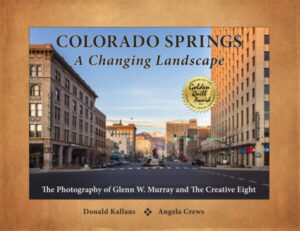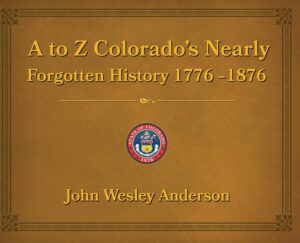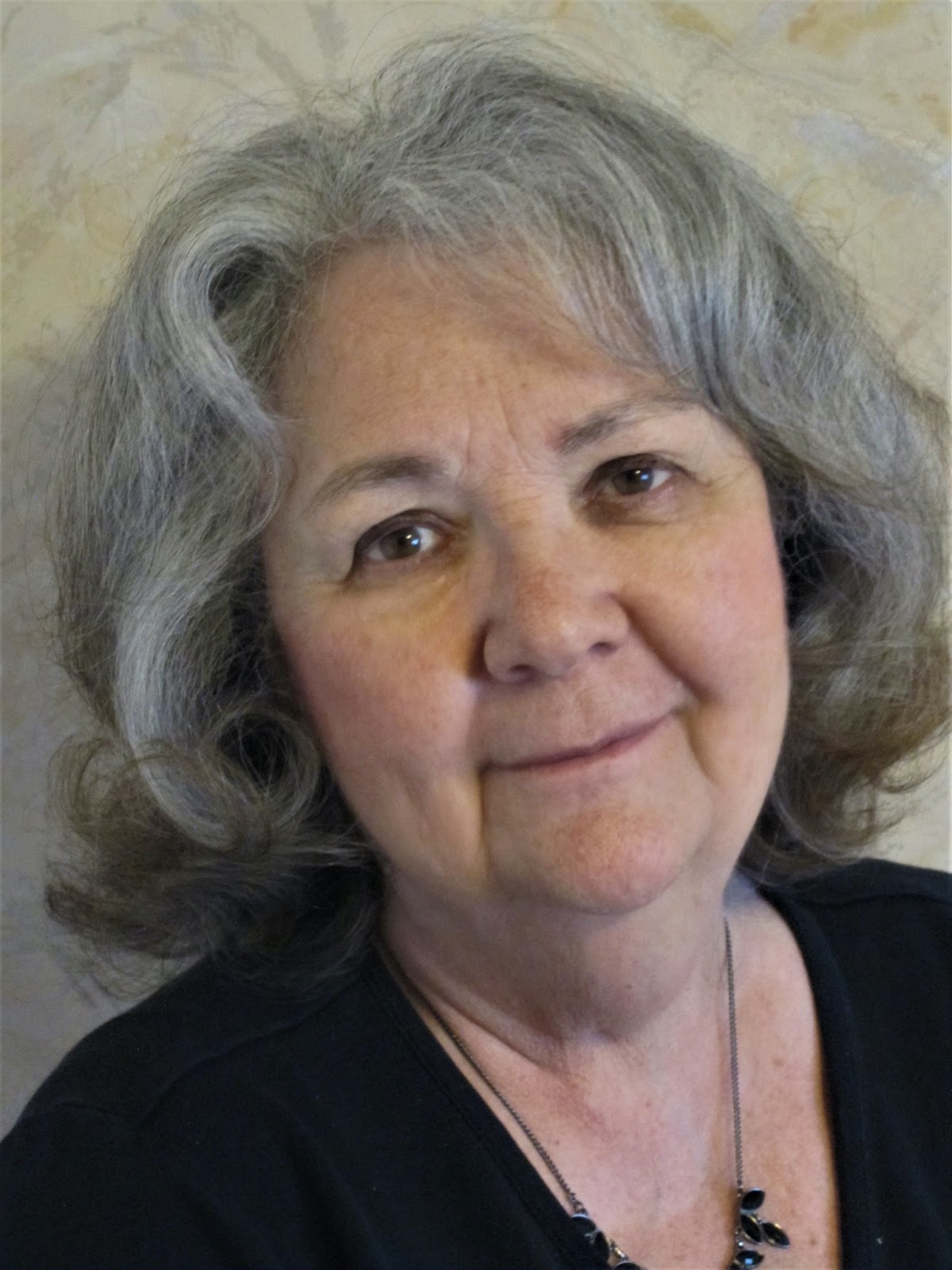Go small and stay home
Independent publisher finds success staying local
Independent publisher finds success staying local
The phrase “go big or go home” doesn’t quite apply to publishing. Don Kallaus, publisher of Rhyolite Press, discovered that it was more like “go small and stay home.”
It took a while to learn the lesson, though.
In 2011, Kallaus and friend John McKenna started the local publishing house, based in Colorado Springs.

Don Kallaus, publisher at Rhyolite Press
“John was the front man and I was the behind-the-scenes guy,” says Kallaus, who brought his background in typography, photography and graphic design to the mix.
But what to name it?
“The Colorado Springs city hall is built of Castle Rock rhyolite,” Kallaus says. “But that’s not really why we named it that. We had about 20 names we liked, but every single one of them was taken. So we went to the world of Latin. And every one of those names were taken, too. John had written a book of short stories and one of them was named ‘Rhyolite Mountain.’ He said, ‘Nobody will have that!’ And they didn’t. So that’s how we got the name.”
The company struggled at first, unable to compete with big publishing houses. Then, when McKenna became ill in 2017, he retired and Kallaus took over the business.
At that same time, Kallaus recalls, the Library of Congress and the nation’s largest book distributor, Ingram, were re-examining categories of publishers. They differentiated between self-publishing and what they called legacy publishing—primarily depending on the approach and numbers of books in their catalogs. Rhyolite ended up in the legacy publishing category, which was more prestigious. They qualified because they edit everything they publish, with rare exceptions, and do quality formatting and cover design.
Rhyolite had about 30 books in its catalog at the time. Now, they have nearly 90 titles, with about 80 percent concerned with local history and culture.
Kallaus, a lifelong resident of Colorado, decided to take the company in new direction. He decided to focus on local history and authors.
“I knew about Colorado Springs, the region, its culture and its art, and thought that if I could focus on that, I could be successful. Because that was a niche that other people weren’t doing. That has worked out very well for us, to be honest.”
How to get published
So you’ve written a book. You can’t even get a polite rejection from the big publishing houses. Now what? Consider taking a chance with a small press like Rhyolite. Here’s the process: An author comes to them with a manuscript, preferably already edited to some extent.

Available at Hooked on Books in Colorado Springs or at clausenbooks.com
“At that point, we study the manuscript, and read it completely. I read it, Angela (Crews, his co-publisher) reads it, then maybe a few outside readers as well. If the consensus is that we like it and think it’s worth publishing, we meet with the author and enter into an agreement.”
Basically, the author pays an up-front fee to cover editing, formatting, cover design and such. Then the publisher and author share the potential profits.
“We arrange it that if the book is promoted and marketed by the author and the book finds decent sales, that underwriting can be earned back. In some cases, the author can earn well over and above the initial underwriting cost of the book.
“This distances us from the vile vanity publishers that troll the internet,” he adds. “Furthermore, we are very discerning as to what we publish. It must fit our focus; we turn down the majority of what comes to us.”
Publishers, once kings of the industry, no longer control the success or failure of a book, Kallaus says. The control is in the hands of the distributor, usually Ingram, which is allied with Amazon.
“They are the big gorilla you have to deal with if you want to get a book distributed nationally,” he says.
Most of what Kallaus and Rhyolite publish is distributed through Ingram, which has outlets on the Amazon, Barnes & Noble and Target book sales sites. Local bookstores, such as Hooked on Books in Colorado Springs, also will carry limited copies.
Most books in the Rhyolite catalog are either print-on-demand or specialty short run.
“Print on demand is the trend now,” he says, “because it eliminates the need for large storage and saves everybody money.” It also gives a book a long shelf life, he adds.
“We also do specialty short run,” especially for art books. We might just print 200 books and, if it sells out, we can print another 100. You can get a really high-quality hardcover, use cover embossing, all sorts of embellishments.”
Through the Colorado lens
The Rhyolite website proclaims: “We proudly promote the rich culture of the state of Colorado and the Pikes Peak region, whether it be art, history, or literature, and promote and celebrate the writers and authors that convey it.”
An example is Colorado Springs: A Changing Landscape, described on the Rhyolite website as a photographic study that “explores the city of Colorado Springs through Glenn Wesley Murray’s photographs made during the 1930s to 1960s, contrasting with contemporary images made by local Colorado Springs photography students. Their challenge, to document the same locations that Murray photographed, sometimes more than 80 years later, and apply their creative eye to the changes, the progress, and sometimes, the unfortunate loss of our city’s history.”
The project was co-edited and guided by Kallaus and Crews with photography students from Pikes Peak Community College (now Pikes Peak State College).

Available at Hooked on Books in Colorado Springs or at clausenbooks.com
It was at this point when Crews became an integral part of the Rhyolite team. With an MFA in fine art photography, publishing experience, and as a teacher for many years, she helped bring the project to fruition and her role as designer evolved.
Rhyolite’s commitment to excellence in publishing got her hooked. And the book that started it all continues to be popular.
“It is proving to be an incredibly revealing [work] given the changes going on here,” Kallaus says. “We did the book in 2018 and it’s been proven to be prescient. It captured things that are now gone or quickly disappearing.”
He’s also especially proud of the current Cheyenne Mountain: Here’s Looking at You, by P.J. and Patrick Anderson. (See our review here.)
Both books have been honored with the Golden Quill Award, given annually by Friends of the Pikes Peak Library District.
Also honored was John Anderson’s (no relation) body of work, most of which was published by Rhyolite. Anderson’s local history books have been very popular and sold well, Kallaus says. They are working with him on his eighth book.
“I especially recommend John’s A-Z: Colorado’s Nearly Forgotten History. It’s fabulous.”
Rhyolite also publishes specialty publications, such as family histories, memorials, books for fundraisers or corporate events. But for them, local history remains the focus. They just published Applause, with stories about the Colorado Springs Symphony, now the Philharmonic.
But the best may be yet to come.
“We have one that will be earth-shaking for Colorado history,” Kallaus says. It’s by PJ Anderson.
“He’s working on a book for Colorado’s 150th birthday in 2026. He is doing unbelievably thorough research. Not only that, it is so well written. His cadence, rhythm and style are rivaled by no other writer I’ve worked with.
“I consider it my magnum opus of my publishing career,” Kallaus says. “It’ll be very powerful.”
Click here for more from Linda DuVal.
